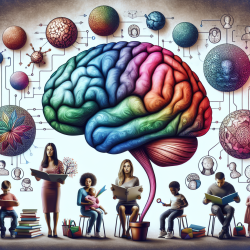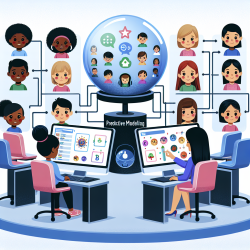The journey to unlocking a child's reading potential is complex and multifaceted. Recent research has highlighted a fascinating connection between parental educational attainment and children's brain development, particularly in the superior temporal cortical surface area, which is crucial for reading ability. This blog explores these findings and offers insights on how educators and practitioners can leverage this knowledge to enhance learning outcomes for all children.
The Role of Parental Education in Brain Development
A study titled "Parental Educational Attainment, the Superior Temporal Cortical Surface Area, and Reading Ability among American Children: A Test of Marginalization-Related Diminished Returns" investigates how parental education levels correlate with children's brain structures and reading skills. The research reveals that higher parental education is generally associated with larger superior temporal cortical surface areas in children, which supports better reading ability.
Understanding Racial Disparities
The study also uncovers significant racial disparities in these associations. For instance, while high parental education boosts the superior temporal cortical surface area and reading ability in white children, the effect is less pronounced in black and other minority children. This phenomenon is part of what researchers call "marginalization-related diminished returns" (MDRs), where the benefits of socioeconomic resources are not equally distributed across racial groups due to structural racism and social stratification.
Navigating the Challenges
- Acknowledge Structural Barriers: Recognizing that societal barriers affect educational outcomes is crucial. Policies should address these barriers to ensure equitable access to resources.
- Create Inclusive Learning Environments: Schools must foster environments that support diverse learning needs and cultural backgrounds.
- Encourage Parental Involvement: Educators can work with parents to enhance their engagement in their children's education, regardless of their educational background.
The Path Forward for Educators
This research provides valuable insights for educators seeking to improve reading outcomes among students from diverse backgrounds. By understanding the role of parental education and addressing the disparities highlighted by MDRs, educators can tailor their approaches to better support all students.
Conclusion
The link between parental education and children's reading ability underscores the importance of addressing educational inequities. By fostering inclusive environments and supporting parental involvement, educators can help bridge the gap and promote better learning outcomes for all children. As we continue to explore these complex interactions, further research will be essential in developing effective strategies to support every child's educational journey.










